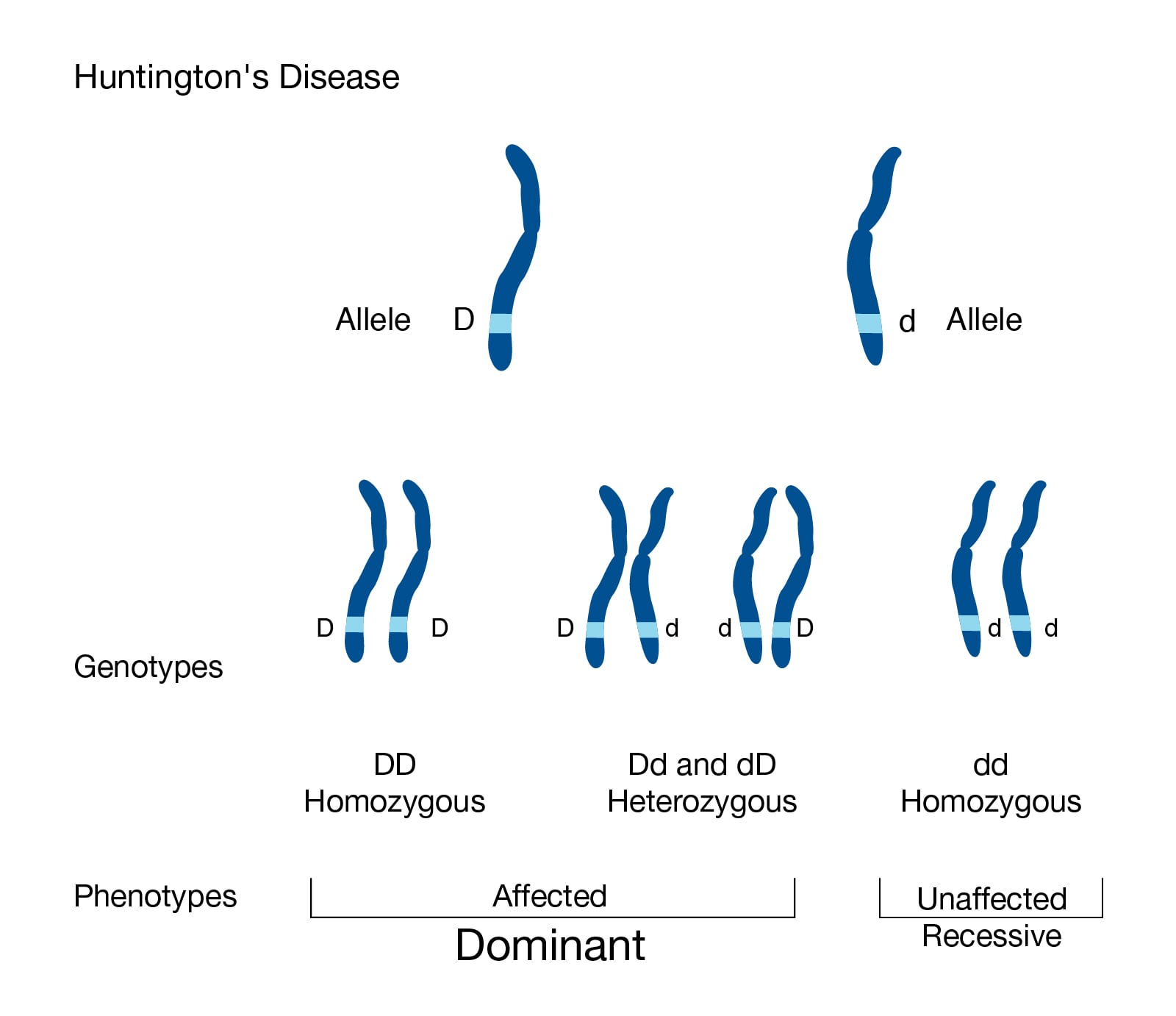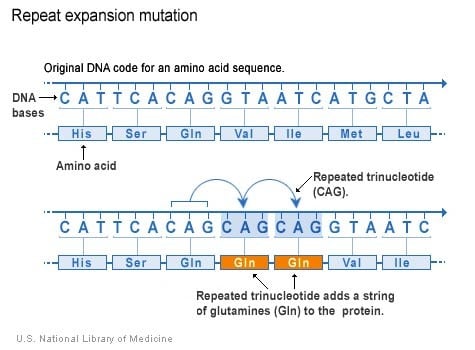Triple repeat or trinucleotide repeat disorders: A trinucleotide (or triple) repeat is a DNA sequence of three nucleotides that’s repeated multiple times in a row. DNA segments with an abnormally high number of repeats are unstable and more likely to develop errors during cell division. In some cases, the number of repeats in a given gene increases (expands) from generation to generation. Once the repeat number crosses a certain threshold, it can cause disease.

Anticipation: The disease tends to appear at a younger age and/or with more severe symptoms in each succeeding generation. This happens because the number of trinucleotide repeats expands across generations.
| Disorder | Associated triple repeat |
| Huntington’s disease, spinocerebellar ataxia types 1-3,6,7 | CAG |
| Fragile X syndrome | CGG |
| Friedreich’s ataxia | GAA |
| Myotonic dystrophy | CTG |

Genomic imprinting: You normally inherit two copies of each autosome: one from your father and one from your mother. In most cases, both copies of a gene are active (“turned on”) in cells. For some genes, however, only one parental copy is normally active. Which copy is active depends on the parent of origin: some genes are active only when inherited from the father, while others are active only when inherited from the mother. This parent-of-origin-specific gene expression is called genomic imprinting. The inactive gene is methylated. Genomic imprinting occurs in only a small percentage of human genes.
Uniparental disomy occurs when both copies of a chromosome come from one parent and no copy comes from the other parent. If uniparental disomy involves a chromosome region that contains imprinted genes, it can cause disease because the person may be missing the normally active set of genes from one parent.
Prader-Willi syndrome: Gene on paternal chromosome 15 is deleted/imprinted or maternal uniparental disomy; hypotonia, hyperphagia, increased appetite, obesity, mental retardation, temper tantrums, almond shaped eyes, small hands and feet, light hair, unusually fair skin, infertility
Angelman syndrome: Gene on maternal chromosome 15 is deleted or imprinted, mutated or paternal uniparental disomy occurs. Developmental delays, mental retardation, ataxia, speech defects, seizures, microcephaly, happy smiling child, hand flapping, hyperactivity, scoliosis
Beckwith-Wiedemann syndrome: Abnormal imprinting at 11p15. Overgrowth, macrosomia, asymmetric growth, omphalocele, umbilical hernia, macroglossia, visceromegaly, hypoglycemia, Wilms tumor, hepatoblastoma, AD
Sign up for free to take 1 quiz question on this topic